I have a son who pours himself glasses of milk. He wears a blue bib and rubs his naked belly against the Frigidaire before drinking each glass. The Frigidaire is white, finished with a textured epoxy that’s like rawhide to the touch. Earl sips his milk and asks me personal questions. He asks how I’m doing, how I slept, whether or not I had many dreams.
He’s a friendly person. He never asks me to move my chair or soften my speaking voice. I appreciate his patterns and his appetite for calcium. I like his name. My husband prefers the names Wayne and Gary.
‘What’s your today like, my dear?’
‘I have an appointment,’ I say. ‘Would you like to come along?’
‘Very much so.’ Earl holds the glass of milk to his head, cooling the temple and mind.
‘I’ll be in the car at half past. Put your glass in the sink when you’re finished.’
‘Do you need a doctor?’
‘No, but help is on the way, Earl. Help is always on the way.’
Earl takes a drink. The milk dribbles down his chin and lands on the bib. The bib wicks and dampens, darkening in color. ‘What all do you need help with?’
‘My hair. More or less,’ I say.
‘Are hair helpers understanding about small children?’
‘Beats me.’
Earl is four. He’s had an intelligence about him for a year or so. Prior to that, he was only kind and on the skinny side. His face is similar to mine. The eyebrows are flighty. The head is square like a carton. His thighs come from my husband. They’re thick and hairless. The skin there looks painted on. Earl’s ankles are quite delicate and he steps strangely. I watch him move about the house in his bib and diaper. He walks on hardwood how you would expect a pond bird might.
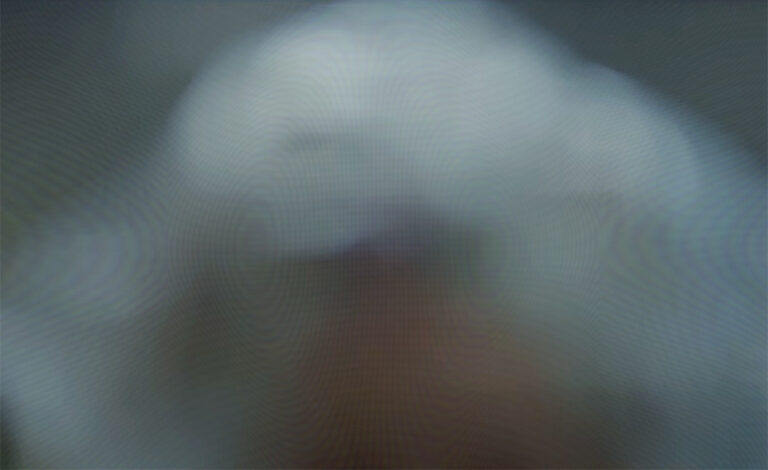
Earl hasn’t learned to use the toilet. The flushing sounds frighten him. I’ve offered to do the flushing on his behalf, once he’s away from the scene, but his fondness for the diaper has won out. He’s allowed his preferences. He cleans and changes himself now. He sometimes has tantrums when he doesn’t feel clean enough, though. The tantrums are extraordinary in terms of expression. He doesn’t cry or abuse his toys. He only coughs. The coughing is violent and it causes him to fall down. He’ll cough until blood is drawn from somewhere inside. This is when I intervene. I either clean him thoroughly with baby wipes or bathe him in the sink. The coughing subsides only when Earl accepts that he is clean again. This sometimes takes hours.
I coughed like that during the pregnancy. I had developed a condition. A nurse with visible earwax deposits explained that Earl had put pressure on things. The top of my stomach had traveled up into my esophagus, past the sphincter. When Earl evacuated, my stomach sunk back into its hole. Now I choke on food from time to time, but it would be more accurate to say that I occasionally choke on my stomach while eating. Earl knows when to deliver percussive smacks to my upper back. He is attuned to the body’s minor failures. He can sense the onset of a charley horse even when the affected limb is hidden beneath an afghan or below a tabletop. Earl vocalizes concern more readily than other people. He will ask how much it hurts. He will offer a glass of water, a cold compress, an antacid. My husband refers to Earl as the human Geiger counter. Geiger for short.
‘Your hair looks healthy to me.’ Earl sits beside me in the passenger seat. I know that he shouldn’t. I know that he is too small.
‘It’s not a matter of health. Buckle your seatbelt, please.’
‘So, it’s a matter of pretty,’ says Earl.
‘I wouldn’t say that, no.’ The windshield is stickumed with highway insects. Earl and I are out of wiper fluid.
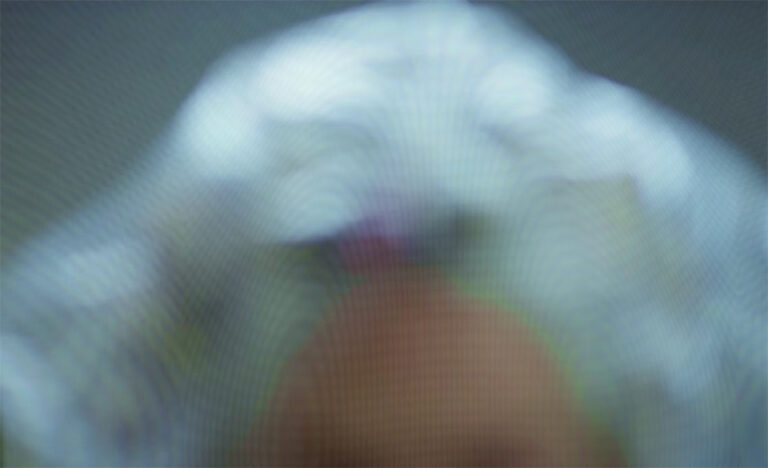
The receptionist wears dull pink all over. I reach her and feel a safety that comes from specific hues. People in pink earn a special kind of trust from me. I tell her what she needs to know: ‘The woman my husband loves on now has ringlets. Little curls. I’d like a head of those, please.’
‘Yes ma’am. Alkaline or acid?’
‘Which makes the prettier curl?’ I ask.
‘Neither’s prettier per se. It’s more about fragility. Acidity corresponds with fragility.’
‘I don’t particularly want fragile curls. I’d like lasting ones. Durable, please. Alkaline, please.’
‘My apologies, ma’am. It’s more about how fragile you are. Before we begin the treatment.’
‘A lot’s happened to me. But I feel fine at night. I’m close to durable, I’d say.’
‘Your hair, ma’am. Is it prone to breakage? Do you find strands of it on your pillow in the morning?’
‘Oh, yes. I find strands.’
‘You’ll need acid then. Do you have a picture of the other woman?’
‘I keep one in my wallet.’
‘We just need to see how kinky her perm is. Assuming that she has one. We’ll use small rods if she’s been tightly wound.’
‘We’re very different women,’ I say.
‘That’s just fine, ma’am. We’ll get you nearer to her.’
‘It’s alright that I have my son with me? He’s respectful. I’d like for him to see how it works.’
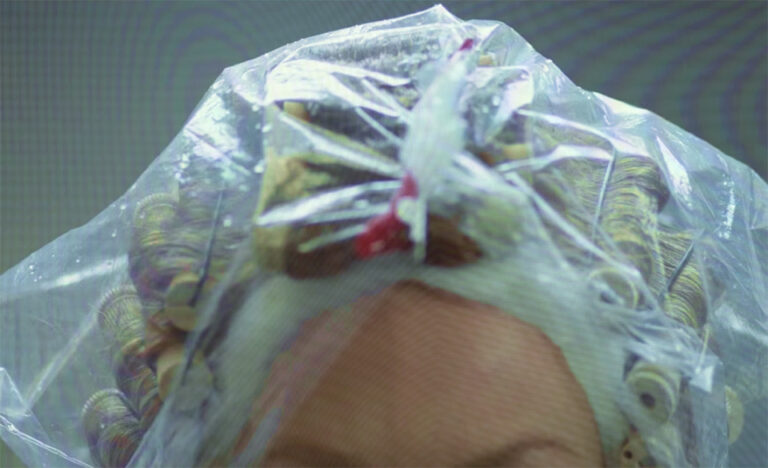
Earl and I are sitting comfortably. His nudity has caused some concern. Certain patrons have approached the receptionist to say softly that they are mothers, that they have plenty at home, that they would be happy to lend us a shirt, an old snow suit, a set of pajamas. Earl has since been offered a cutting cape. It buttons at the back of his neck, veiling the bib, diaper and shoes. A hair technician explains to us that she is less of a barber and more of a chemist. We believe her because she has a procedure. Labeled squirt bottles are at the ready.
‘This is a process of breaking bonds,’ says the technician. ‘A chemical reaction will cause the hair cuticles to swell up. You mustn’t worry over the swelling. You won’t feel it. You won’t feel the bonds breaking apart either. Once the hairs have lost their natural composure, they’ll accept the curvature of the rods, molding themselves to our liking.’
I look into the mirror and see Earl. He seems pleased with me. I’m going to get the help I need. I ask Earl how much milk we have in the fridge. He assures me that there is plenty. Both gallons are dated to expire a week from tomorrow. My husband doesn’t keep milk at his house. He prefers Earl to drink orange juice during their time together. I understand it and so does Earl. Vitamin C is a concern we ought to have.
The technician begins to roll and secure the rods. The hair has been parsed into rows and strips. I tell Earl that I suspect the process will smell and take time. Earl understands.
‘Here today, gone in a flash, my dear!’
The technician nods. She doesn’t offer us more exact figures. It could be an hour. It could be two. It will smell like nail polish remover or burnt rubber or summer.
Earl is a patient person. He knows that boredom ends. My husband and I have never left Earl waiting in a field or lobby. We never use the phrase ‘just a little while longer’. Earl is always lifted from the bathwater before it cools. He once told me that being bored was just that: ‘When there isn’t enough of it, the world eats at your middle. A hole gets made where there wasn’t one before. You’re pruned but feel wide like a target. Lucky for us, the bores heal up at breakneck speeds.’
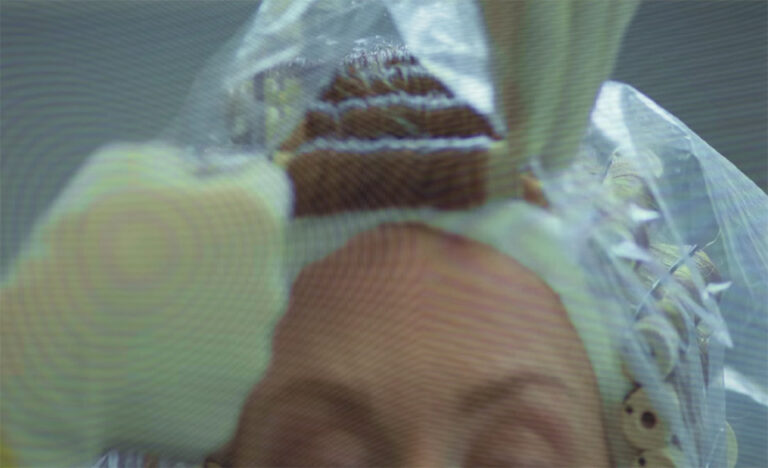
Earl asks me about myself through the mirror. ‘Do you miss having a husband?’
‘It’s nothing like that, Earl. I do have a husband.’
‘What’s it like then?’ The cutting cape has taken Earl’s body away. He’s only a head. He resembles me now more than ever.
‘I look at the woman’s photograph from time to time. She’s standing arbitrarily on this little dock. Arbitrarily smiling out at something. Arbitrarily in front of your father’s Nikon. I’d like to not be arbitrary. I’d like for my appearance to have nothing to do with whim. Nothing to do with the bits of DNA I’ve been awarded at random. This way, it’s systematic,’ I explain. My hair will be like her hair because of certain logic. Old, domino logic. I’ll be a woman trying to look like another woman.’
‘You want not to be willy-nilly.’
‘In a sense. You and I are randomly together, for example. You’re random in the way all babies are random. I made you less random when I named you Earl. It’s a family name.’ Earl is watching the technician and not me. He’s kicking at his cutting cape. He’s getting bored. ‘Families are systems put in place to help us not feel so arbitrary. Do you know what associated means?’
‘I do, yes,’ says Earl.
‘Well, I’d like us to be associated. Decidedly bound by a common purpose or function. I wish that sons and daughters were called associates instead. I wish it for mothers and fathers, too.’
The kicking stops. ‘You can call me that.’
‘It has a business ring to it, I know. But business, at the Old English root, just means care and anxiety. We’re in business, you and I.’
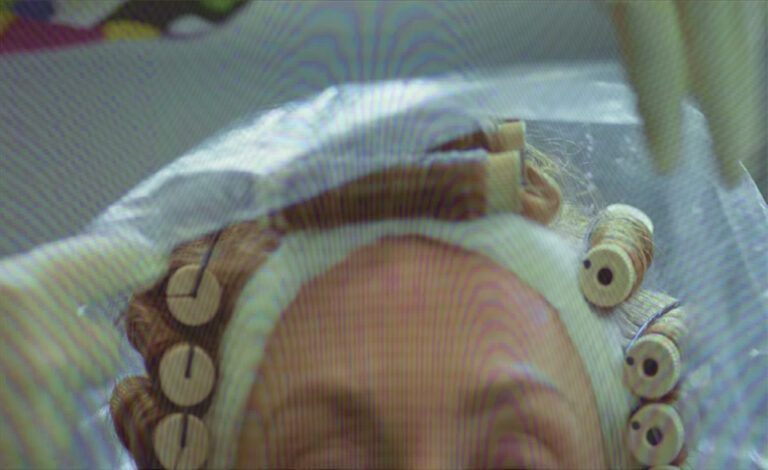
When Earl is upset by one of our conversations, he crosses his legs at the knee and again at the ankle. He sits double-knotted until something settles in him. He’s holding himself that way now. The cape can’t hide it. It could be that my reasoning seems unsound. After all, if the woman is arbitrary and my formula is based upon her, then I’m arbitrary once removed. It could be that he feels he’s been initiated into a cult. He might be picturing himself with a perm of his own. Perhaps it looks dreadful. Or it could be that he has given me a permission he wishes he hadn’t. Few sons long to be called associates. Even fewer long to call their mothers the same. It isn’t a very pretty word. It has no girth. There’s something plastic about it.
Earl holds one of my hands. The chemicals will burn my scalp soon. And although the sensation hasn’t yet occurred to me, it has occurred to him. The comfort is premature, so it isn’t comfort. His hand is a warning, a sweet and tidy thing beneath our capes. I ask Earl if I’ve hurt him. He assures me that I haven’t. He says that he understands me. He says that I make perfect sense. I look into the mirror to tell Earl that I love him. Earl smiles big and gummy. He doesn’t answer me.
‘If you don’t mind my saying so, you’re more beautiful than the woman in the photograph,’ says the technician.
‘My husband told me that she’s pictured there sick with Lyme. A tick got the better of her. Keep that in mind,’ I say.
‘I had that once. It slowed everything. I was even slow to smile. I thought maybe I was dying,’ says the technician.
Earl looks serious in his cutting cape. I miss his body, the blank shine of it. I miss the clean blue bib.
‘It’s the nymphs, you know,’ says Earl. ‘Their bellies are translucent. They’re so clear and so small that they can bite without drawing much attention to themselves. When a nymph gets you, there’s usually no bullseye, no sign of entry or infection. The nymphs croak almost immediately after biting. They die see-through. I feel sorry for them. They’re only babies. They can’t bear the job.’
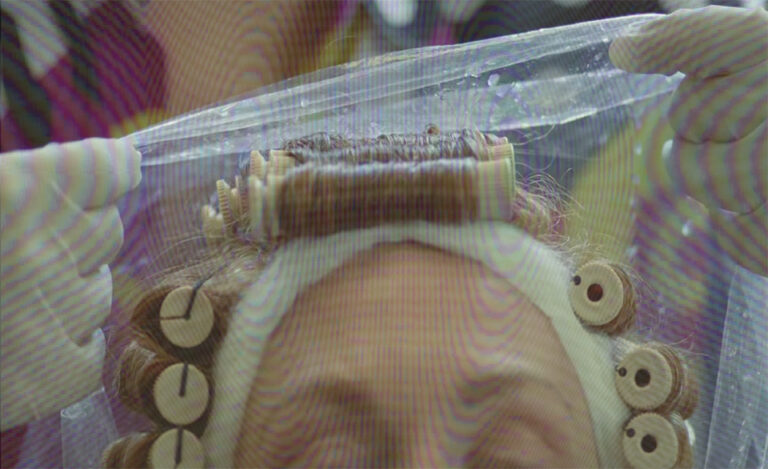
These images are altered stills from Todd Haynes’ 1995 film Safe







